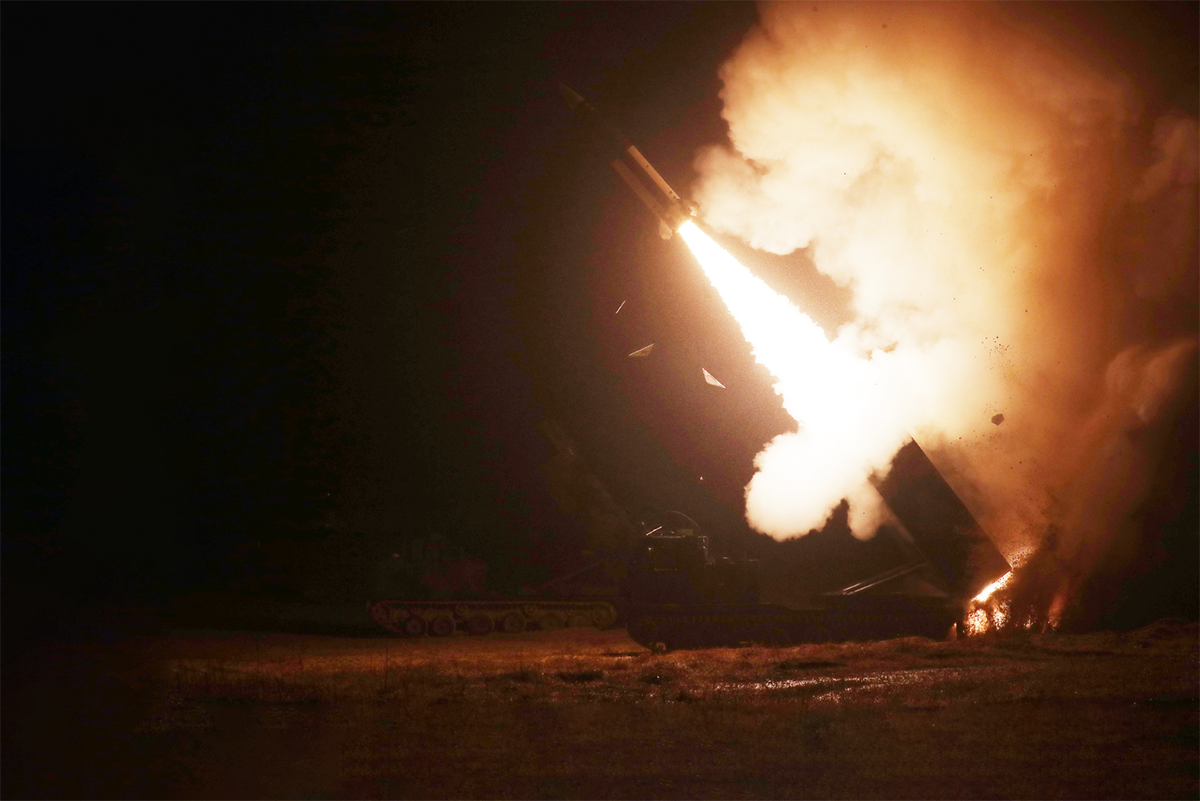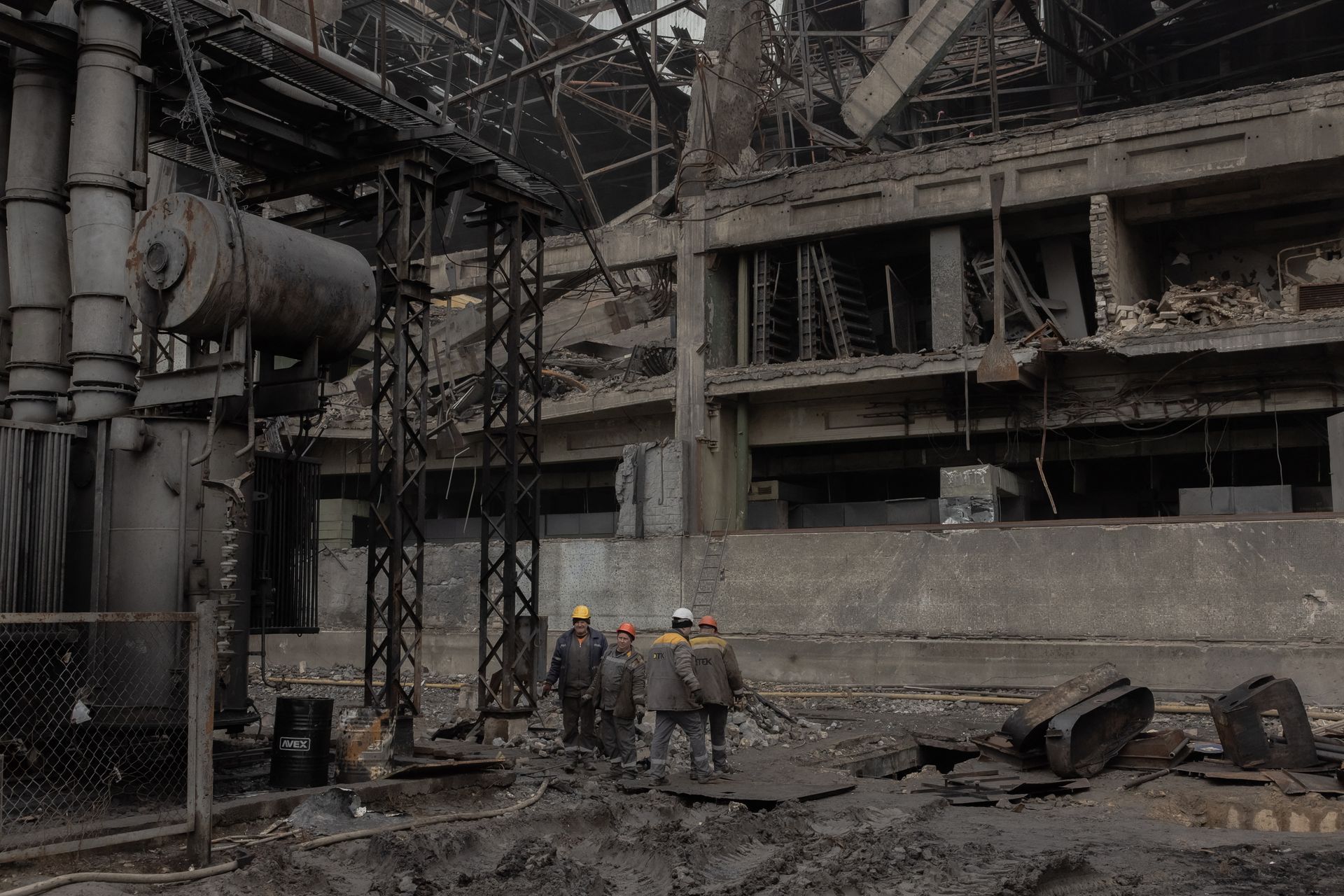Why Russia cannot help but invade

Russia’s President Vladimir Putin in Moscow, Russia, on June 22, 2025. (Contributor / Getty Images)
Andrew Chakhoyan
The planned Trump-Putin summit in Budapest has been shelved. The White House says there's no point meeting unless "we're going to make a deal." Some view this as a setback for diplomacy, but it may well be the clearest moment in a long struggle to curb Russia's appetite for war.
Russian President Vladimir Putin made the decision to invade first in 2014 and then again in 2022. Western policy has long assumed that peace depends on his will. Under U.S. President Donald Trump, that belief was paired with the notion that personal chemistry could make a difference.
But what evidence is there? Aren't we endowing Putin, a wanted war criminal, with control he no longer exercises?
The answer lies in understanding what, not just who, Washington has been trying to negotiate with.
Stretching over eleven time zones, the Russian Federation remains an unreformed empire in search of purpose and legitimacy, not a nation-state defending national interests. To dismiss that as semantics is to ignore how its power works: a state where wars of aggression choose the "leader" to wage them.
The colonial structure underpinning Moscow's rule, not Putin, makes the threat permanent and peace negotiations hollow.
More than a century apart, two Russian despots — Vladimir Lenin and Putin — acted by the same maxim: probe with bayonets, push when you find mush, withdraw when you hit steel. Since 2008, from Georgia to Aleppo, and from Crimea to Bucha, Moscow has found too little Western steel and kept pushing.
Much has been written about the need to restore peace through strength, far less about why Russia, under tsars, commissars, and kleptocrats alike, feels compelled to probe with its blood-soaked bayonet in the first place.
The answer is a colonized-colonizer double bind: a system that demands expansion abroad to enforce subjugation at home. Putin is not the cause, here; he is the result.
The failure to meet hostility with resolve creates a vacuum that draws Russian aggression westward. That push-and-pull dynamic is reinforced by a vicious cycle sustaining the Kremlin's domestic legitimacy: a made-up grievance feeding conquest, conquest followed by denial, and denial seeding the next false grievance.
Russia co-initiated WWII by conspiring to partition Poland and invading from the east when Nazi Germany pushed in from the west, yet in the Kremlin's telling, blame rests exclusively with Adolf Hitler. Russia threatens its neighbours, who then seek to join a defensive alliance, but in Moscow's upside-down world, NATO is somehow responsible for the Kremlin's belligerence. The claimed victimhood of the aggressor is central to the crime.
Hoping for Russia to "return" to democracy or outgrow its violence is not a strategy — it is nostalgia for a country that has never existed.
In a chilling formulation that would not have been out of place in the late 1930s, Putin declared that Russia's borders are defined by Moscow's territorial appetite — wherever a Russian soldier sets foot is "ours." As Ukrainian philosopher Volodymyr Yermolenko notes, Russian imperialism rests on imposed sameness, a demand that others, Russians included, exist only as extensions of Moscow.
Beneath the facade of federation lies a patchwork of subjugated peoples whose cultures have been, or are being, erased. Conquest serves a dual purpose: it intimidates neighbours and sustains the Kremlin's power by concentrating wealth and authority in Moscow.
War in Ukraine is not about a particular ideology, given regime, or a specific tyrant; this has to do with Moscow's mandate to rule over internal colonies.

Hoping for Russia to "return" to democracy or outgrow its violence is not a strategy — it is nostalgia for a country that has never existed. A Dutch imperialist could continue as a Dutch national after the empire fell; Russians have no such civic homeland to return to. The outer shell of the empire fell off in 1991, and many mistook that for collapse. Like a matryoshka doll, within one "prison of nations" another waited.
The task for America and Europe is to deny the Kremlin the means to turn cross-border violence into domestic legitimacy.
When Muscovy — the precursor to modern Russia — moved from vassalage under the Mongol khans to its own dominion, it never built a nation. Muscovy stole Ukraine's founding myth and rebranded as Russia by looting the name Rus' from Kyiv, too. Many contradictions and Russia's societal ills are rooted in this original act of identity theft.
Moscow is not separated from its colonies by oceans, which makes its domination harder to see and easier for the Kremlin to deny — a phenomenon known as the "saltwater fallacy."
Few have so brazenly weaponized the language of justice. Russia colonizes in the name of "anti-imperialism," it "shields" Ukraine's Russian-speakers from harm with missile strikes, and brings "freedom" through occupation.
Lies are the glue holding a Frankenstein state together — a convenient stand-in for a nonexistent national idea. The extreme nature of the falsehoods isn't a flaw, but a feature of the Kremlin's governance model. This system fosters learned helplessness among its people, exercising control through humiliation.
Naturally, Russia's "national interests" diverge from those of its people. This is how Moscow props up an extractive, self-serving, and cruel order, offering conquest and the dream of "greatness" in a sleight-of-hand exchange for the freedoms it takes and the wealth it plunders from a population it treats as subjects, not citizens.
And who bears the brunt? Ethnic minorities in the resource-rich regions of the Caucasus, Siberia, and the Urals.
Ukraine's answer lies in what former Defence Minister Andriy Zagorodnyuk calls strategic neutralisation: rendering Moscow's aggression operationally pointless. Rather than waiting for grassroots changes in Russia, Kyiv is building a state that endures and prospers under constant pressure, turning Russia's war into a self-defeating project.
For the Free World, that means tightening sanctions and arming Ukraine so thoroughly that the Kremlin's imperial delusions collapse under their own weight.
"To win all of Ukraine back in its original form," — as Trump put it — is not a maximalist aim but the prerequisite for peace, and a chance for Russians to build a post-imperial state.
Editor's Note: The opinions expressed in the op-ed section are those of the authors and do not purport to reflect the views of the Kyiv Independent.











